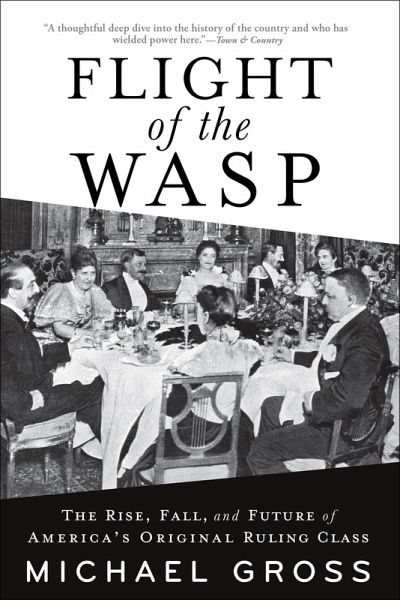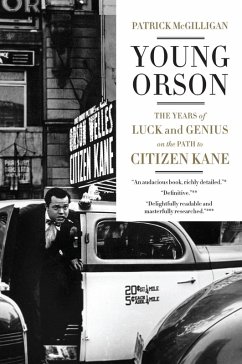
Flight of the WASP (eBook, ePUB)
The Rise, Fall, and Future of America's Original Ruling Class
Versandkostenfrei!
Sofort per Download lieferbar
11,95 €
inkl. MwSt.
Weitere Ausgaben:

PAYBACK Punkte
6 °P sammeln!
Fifteen families. Four hundred years. The complex saga of the White Anglo-Saxon Protestant elite in America's history.For decades, writers from Cleveland Amory to Joseph Alsop to the editors of Politico have proclaimed the diminishment of the White Anglo-Saxon Protestants, who for generations were the dominant socio-cultural-political force in America. While the WASP elite has, in the last half century, indeed drifted from American centrality to the periphery, its relevance and impact remain, as Michael Gross reveals in his compelling chronicle.From Colonial America's founding settlements thro...
Fifteen families. Four hundred years. The complex saga of the White Anglo-Saxon Protestant elite in America's history.
For decades, writers from Cleveland Amory to Joseph Alsop to the editors of Politico have proclaimed the diminishment of the White Anglo-Saxon Protestants, who for generations were the dominant socio-cultural-political force in America. While the WASP elite has, in the last half century, indeed drifted from American centrality to the periphery, its relevance and impact remain, as Michael Gross reveals in his compelling chronicle.
From Colonial America's founding settlements through the Gilded Age to the present day, Gross traces the complex legacy of American WASPstheir profound accomplishments and egregious failuresthrough the lives of fifteen influential individuals and their very privileged, sometimes intermarried families. As the Bradford, Randolph, Morris, Biddle, Sanford, Peabody and Whitney clans progress, prosper and periodically stumble, defining aspects in the four-century sweep of American history emerge: our wide, oft-contentious religious diversity; the deep scars of slavery, genocide, and intolerance; the creation and sometime mis-use of astonishing economic and political power; an enduring belief in the future; an instinct to offset inequity with philanthropy; an equal capacity for irresponsible, sometimes wanton, behavior.
American society was supposed to be different, writes Gross, but for most of our history we have had a patriciate, an aristocracy, a hereditary oligarchic upper class, who initiated the American national experiment. In previous acclaimed books such as 740 Park and Rogues' Gallery, Gross has explored elite culture in microcosm; expanding the canvas, Flight of the WASP chronicles it across four centuries and fifteen generations in an ambitious and consequential contribution to American history.
For decades, writers from Cleveland Amory to Joseph Alsop to the editors of Politico have proclaimed the diminishment of the White Anglo-Saxon Protestants, who for generations were the dominant socio-cultural-political force in America. While the WASP elite has, in the last half century, indeed drifted from American centrality to the periphery, its relevance and impact remain, as Michael Gross reveals in his compelling chronicle.
From Colonial America's founding settlements through the Gilded Age to the present day, Gross traces the complex legacy of American WASPstheir profound accomplishments and egregious failuresthrough the lives of fifteen influential individuals and their very privileged, sometimes intermarried families. As the Bradford, Randolph, Morris, Biddle, Sanford, Peabody and Whitney clans progress, prosper and periodically stumble, defining aspects in the four-century sweep of American history emerge: our wide, oft-contentious religious diversity; the deep scars of slavery, genocide, and intolerance; the creation and sometime mis-use of astonishing economic and political power; an enduring belief in the future; an instinct to offset inequity with philanthropy; an equal capacity for irresponsible, sometimes wanton, behavior.
American society was supposed to be different, writes Gross, but for most of our history we have had a patriciate, an aristocracy, a hereditary oligarchic upper class, who initiated the American national experiment. In previous acclaimed books such as 740 Park and Rogues' Gallery, Gross has explored elite culture in microcosm; expanding the canvas, Flight of the WASP chronicles it across four centuries and fifteen generations in an ambitious and consequential contribution to American history.
Dieser Download kann aus rechtlichen Gründen nur mit Rechnungsadresse in A, D ausgeliefert werden.












